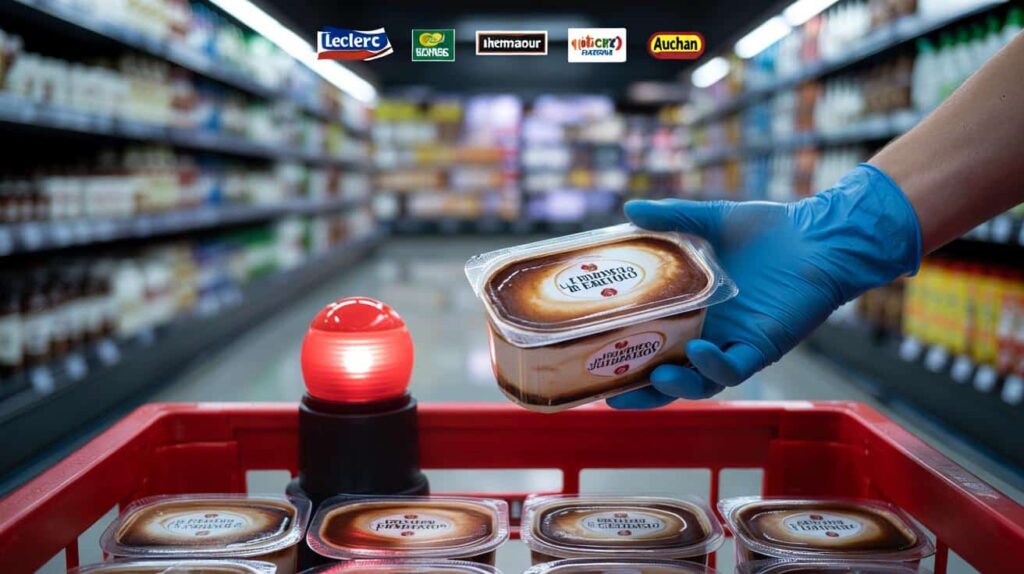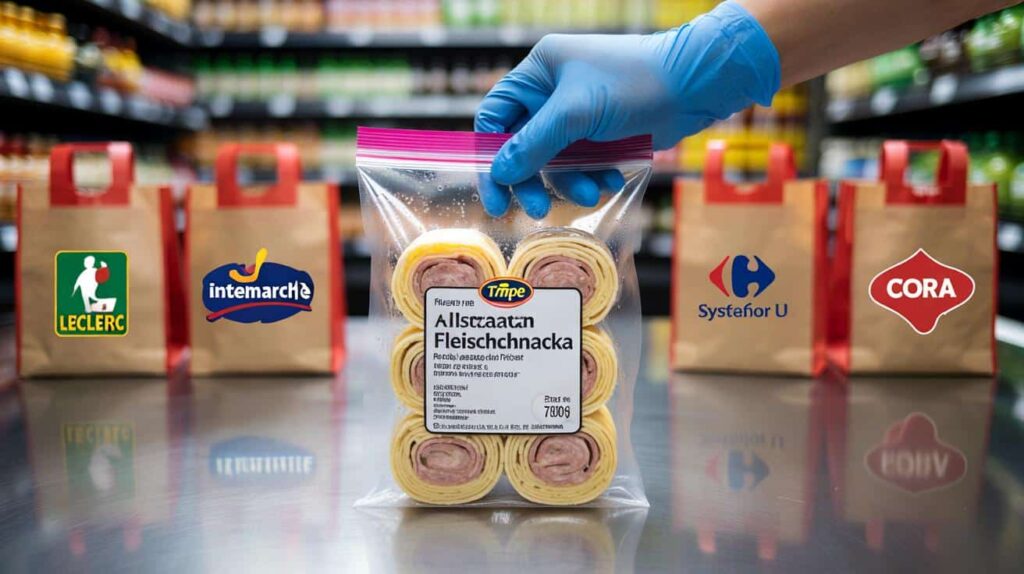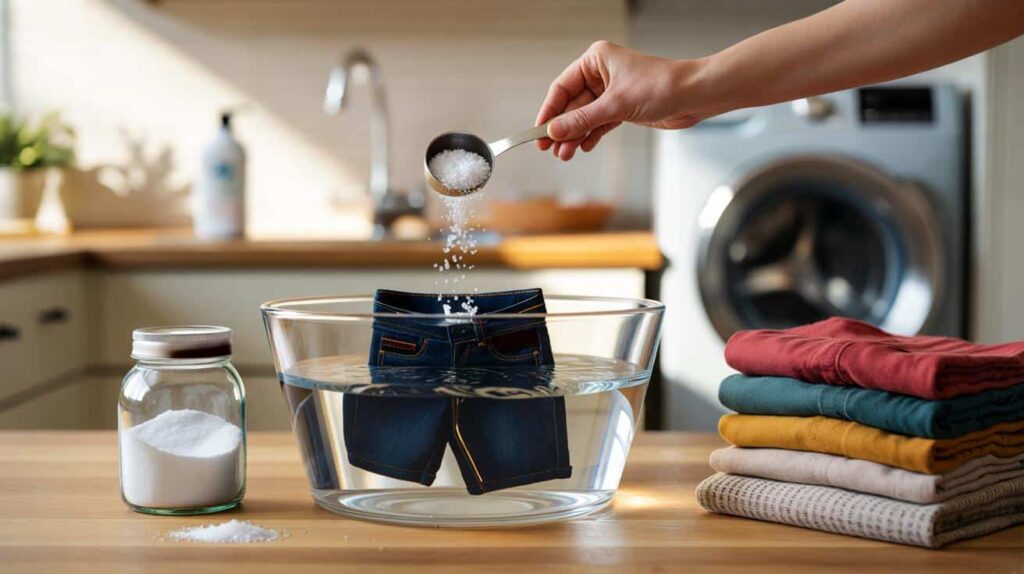A national alert is now requesting a closer examination.
France’s largest grocery chains have jointly initiated an urgent recall for a coffee-flavored yogurt dessert produced by La Fermière. A quality issue identified post-distribution prompted the alert, along with clear instructions for refunds and safe disposal.
What occurred
Major retailers — Leclerc, Intermarché, Carrefour, Auchan, Francap, and Match — are removing a specific dairy dessert from their shelves and urging customers to take action. The notice was published on the government’s Rappel Conso portal, which consolidates consumer alerts and accelerates communication when a product may present a health risk.
The product in question
The recall focuses on La Fermière’s Liégeois Café, a coffee yogurt dessert sold in twin packs. The manufacturer and retailers recommend that customers refrain from consuming the product, even if it appears normal.
| Product | Liégeois Café (2 x 120 g) |
|---|---|
| Brand | La Fermière |
| GTIN | 3279231733019 |
| Lot | 23/05/25 |
| Purchase window | 26 April to 15 May 2025 |
| Retailers | Leclerc, Carrefour, Auchan, Intermarché, Francap, Match |
| Reason | Organoleptic anomaly (change in acidity/texture indicating abnormal lactic bacterial growth) |
| Action | Do not consume; return or dispose of for a refund |
| Hotline | 0800200204 |
| Recall end date | 30 May 2025 |
Do not consume La Fermière Liégeois Café 2×120 g, lot 23/05/25 (GTIN 3279231733019). Return or dispose of. Refund available.
Where and when it was available
The affected batch was distributed nationwide. Customers may have purchased it between 26 April and 15 May 2025 at Leclerc, Carrefour, Auchan, Intermarché, Francap, and Match. If you shop at more than one of these retailers, check every fridge shelf at home. The GTIN and lot numbers can be found on the product label and packaging insert; verify both before taking any action.
Have questions about the process or refund? Call 0800200204. The recall period lasts until 30 May 2025.
Why the alert was issued
The alert was triggered by an “organoleptic anomaly” — a technical term indicating that the product has undergone an unexpected change in taste, smell, acidity, or texture. In fresh dairy products, these changes can indicate undesirable microbial activity. In this instance, the notice refers to abnormal growth of lactic bacteria, which may occur when a recipe or storage condition deviates from the norm.
Healthy adults may experience no symptoms or only mild digestive discomfort. Vulnerable groups are at a higher risk: young children, elderly individuals, pregnant women, and anyone with a compromised immune system.
- Common symptoms to monitor: nausea, digestive issues, abdominal pain.
- Seek medical attention if symptoms arise after consuming the product.
- Keep the packaging if your doctor requests product information (GTIN, lot).
What actions to take now
Act promptly and keep it straightforward. Retailers have established a simplified refund process.
- Identify the product: La Fermière Liégeois Café 2×120 g.
- Verify identifiers: GTIN 3279231733019 and lot 23/05/25.
- Do not taste-test. Visual inspections cannot guarantee safety.
- Return it to the store for a refund, or dispose of it safely at home.
- If the cup has leaked, clean the shelf with warm soapy water, then rinse and dry.
- If you have already consumed it and feel unwell, reach out to a healthcare professional.
- Call 0800200204 for questions or assistance regarding the recall.
How recalls are handled swiftly in France
Since 2021, Rappel Conso has functioned as the central hub for product alerts in France. Brands and retailers are required to promptly report any risks, publish clear information, and offer a solution at the point of sale. Supermarkets then replicate the notice in-store and online to quickly inform shoppers. This system reduces the time between detection and action, minimizing the likelihood that hazardous items remain in homes.
How to read labels like an expert
Two key data points are essential during a recall: the GTIN and the lot number. The GTIN acts as a global barcode identifier, while the lot number specifies the production run. A recall typically targets a specific lot because a single manufacturing period produced the issue. If your GTIN matches but the lot number differs, you can usually keep the product. When both match, follow the recall instructions without delay.
Practical advice for dairy desserts at home
Maintaining cold-chain practices is crucial for chilled desserts. Keep a small thermometer in the fridge and aim for a temperature between 0–4°C. Purchase chilled items last, group them together, and refrigerate them within two hours — sooner in hot weather. Rotate stock so that older items are used first.
Trust your eyes and nose only as an initial filter. A product may appear fine yet still have a quality issue. Date labels are informative: “use by” indicates a safety period, while “best before” refers to quality. This recall falls outside that logic: identifiers take precedence over the date because the lot itself raises concerns.
Why minor changes in texture are significant
Yogurt desserts depend on controlled fermentation. If acidity shifts or the texture separates unexpectedly, it likely indicates a disruption in balance. This could result from temperature variations, packaging stress, or a specific issue during production. The recall serves as a precautionary measure — it eliminates uncertainty before it leads to a health risk for someone vulnerable.
What to do if returning to the store isn’t possible
If returning isn’t an option, dispose of the cups unopened to prevent spills. Wrap the containers in a sealed bag before discarding. Take a photo of the GTIN, lot number, and receipt for your records. Many retailers will honor refunds during the recall period without the actual product, as long as the identifiers are clear. Call the hotline to confirm the procedure for your area.
Staying proactive about future alerts
Set a weekly reminder to check the official recall portal and inspect your fridge and pantry. A five-minute routine can help identify issues early. If you shop for family or neighbors, share the notice and check their fridges as well. Recalls are most effective when information spreads quickly and calmly.








